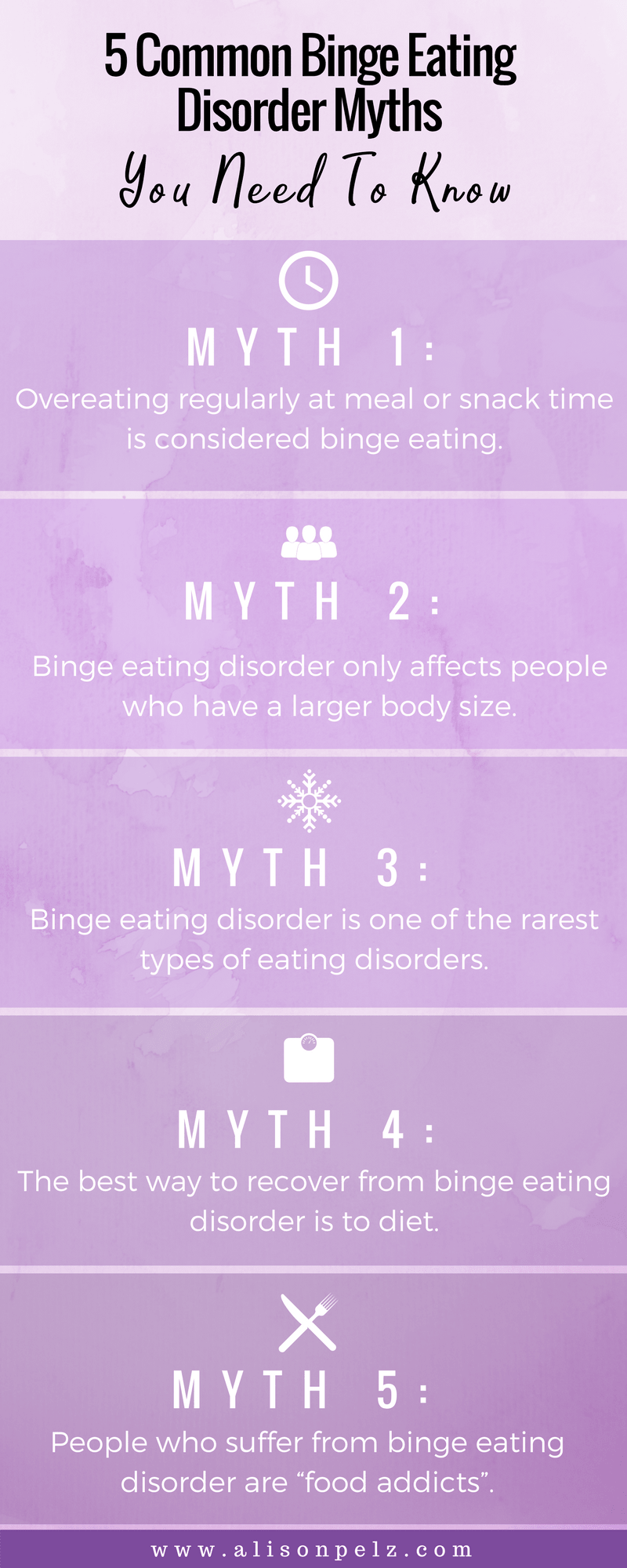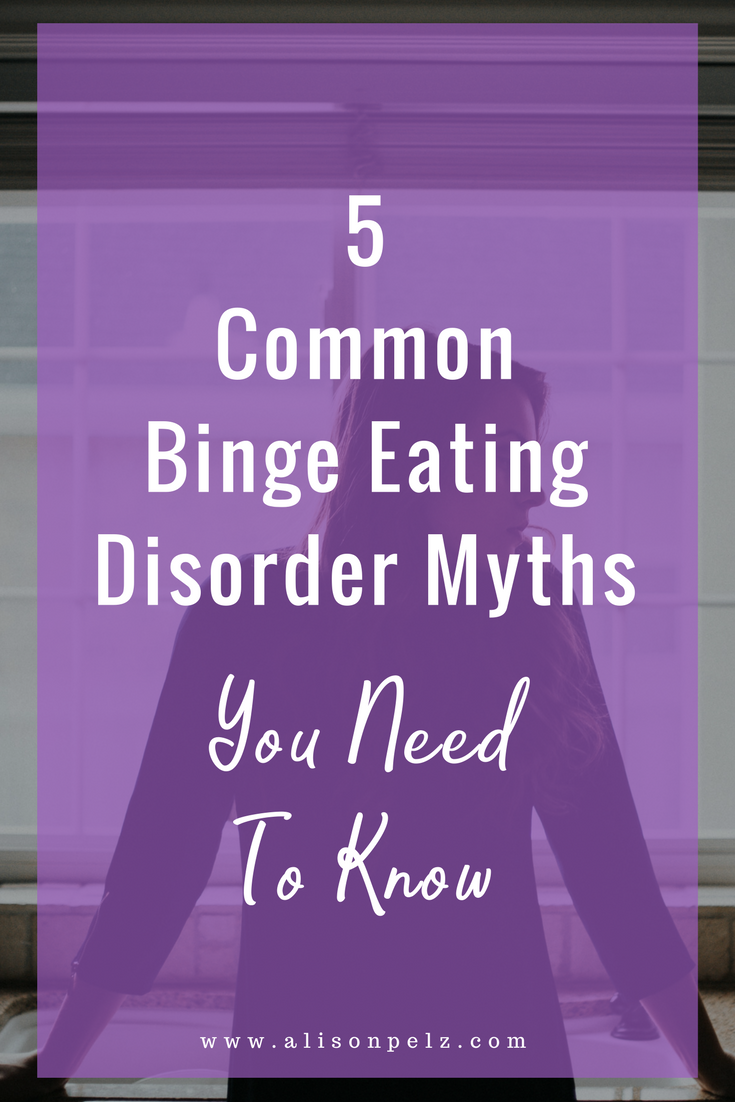Accurate information & challenging misconceptions is an important first step in getting treatment for binge eating disorder. The phrase “binge eating” gets used a lot in the media & pop culture. I have gathered some common myths about binge eating disorder (BED) that I have seen over my 15 years of working with clients with eating disorders.
-
Myth: Overeating regularly at meal or snack time is considered binge eating.
Fact: Binge eating means eating large amounts of food in a short amount, when not hungry, usually the food is consumed in private. Feeling out of control with food is a hallmark of binge eating. Feelings of shame & guilt are associated with the binge are usually present.
2. Myth: Binge eating disorder only affects people who have a larger body size.
Fact: There is no one body type that defines a person with binge eating. In fact, those with binge eating often come from diverse backgrounds in terms of gender, ethnicity, body size, social-economic status and age.
3. Myth: Binge eating disorder is one of the rarest types of eating disorders.
Fact: Binge eating disorder is one of the most common types of eating disorders, more common than anorexia nervosa and bulimia nervosa combined. According to The Binge Eating Disorder Association, 3.5% of women and 2% of men meet the criteria for binge eating disorder. Furthermore, 30-40% of weight loss seeking adults meet the criteria for binge eating disorder.
4. Myth: The best way to recover from binge eating disorder is to diet.
Fact: Studies show that dietary restriction & dieting, can make binge eating disorder worse. In fact, dieting is a risk factor for developing an eating disorder. Unfortunately, all too often people who suffer from binge eating will seek weight loss treatment, often from a trained medical professional, only to make the eating disorder worse.
5. Myth: People who suffer from binge eating disorder are “food addicts”.
Fact: Binge eating disorder and alcohol/drug addiction share similarities. For example just like substances, food is used to reduce stress, often used in private. Furthermore, there is a feeling of loss of control over food, just like with substances. Our brains may become activated similarly to drugs & alcohol when we eat certain foods, as a reward pathway. But, unlike drugs or alcohol, we need food to stay alive. This is a primary reason that is cited by those who don’t believe we can be addicted to food. By design, we get pleasure from eating so we will seek out more food (to sustain us). To read more about food addiction click here.
Do you think you have binge eating disorder? Please call me for a free initial consultation at (512) 293-5770.



